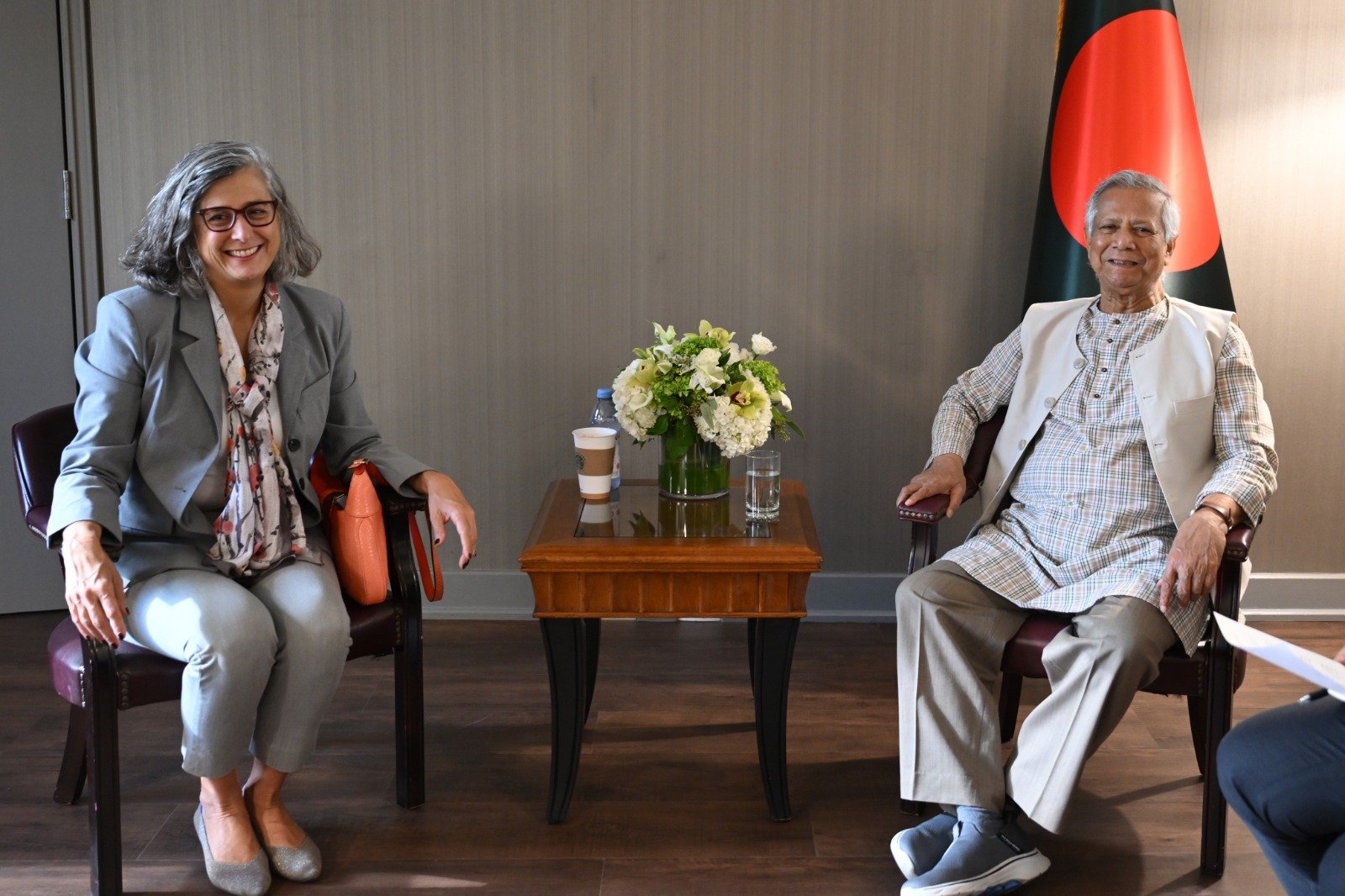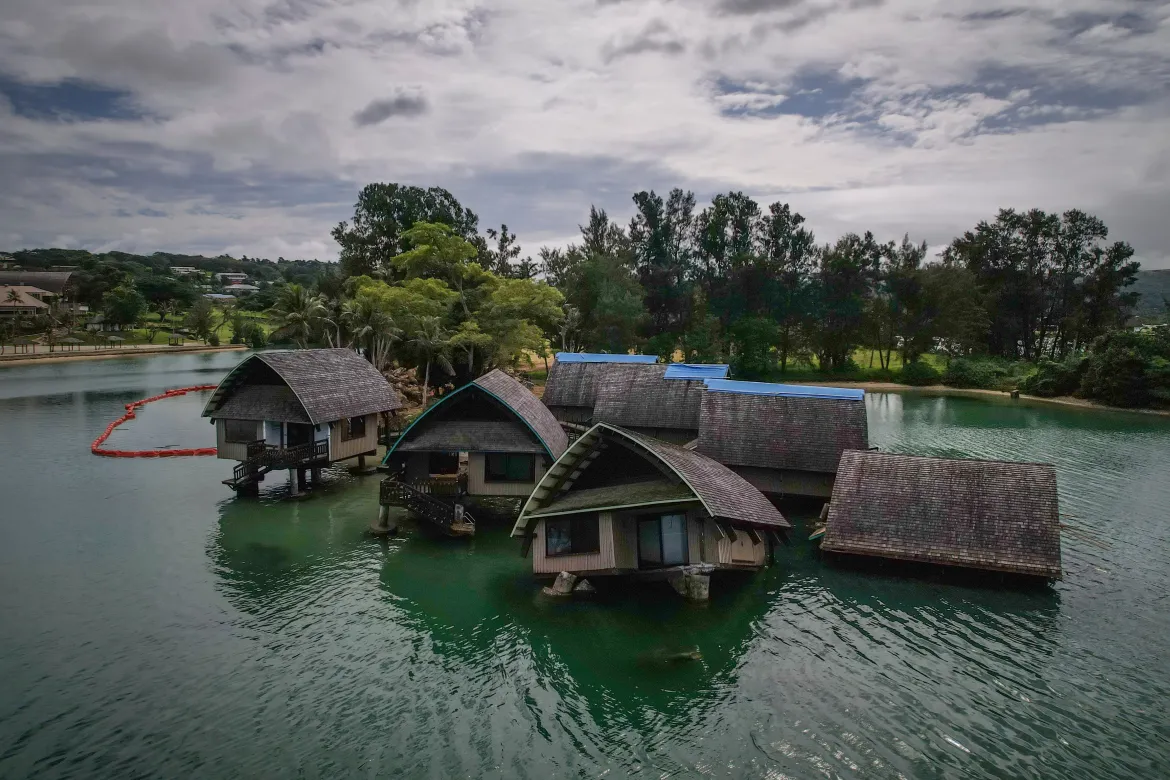Professor Yunus Calls for Low-Cost, Climate-Resilient Housing in Disaster-Prone Regions
Rossbach confirmed UN-Habitat’s interest in the upcoming Rohingya conference and responded positively to an invitation from Housing and Industries Adviser Adilur Rahman Khan to visit the Rohingya camps in Bangladesh. She highlighted the importance of a robust UN-Habitat presence in Bangladesh due to the country’s frontline role in the global climate crisis.
Professor Yunus Calls for Low-Cost, Climate-Resilient Housing in Disaster-Prone Regions
New York, September 27 (CSB News USA) – Chief Adviser Professor Muhammad Yunus on Saturday urged UN-Habitat to expand its presence in Bangladesh to develop sustainable and affordable housing solutions for communities frequently affected by climate-related disasters.
Professor Yunus made the remarks during a meeting with Under-Secretary-General and Executive Director of UN-Habitat, Anacláudia Rossbach, on the sidelines of the UN General Assembly in New York.
The leaders discussed a broad range of issues, including affordable housing for rapidly urbanizing areas, waste management, microfinance-based housing solutions, and the global impact of climate change on vulnerable communities.
Professor Yunus emphasized the need for context-specific, multipurpose housing models for communities regularly affected by floods, river erosion, and cyclones—disasters that have intensified due to climate change.
“Floods, cyclones, and river erosion destroy thousands of homes every year. We urgently need sustainable and affordable housing solutions for these people,” Yunus said.
He proposed innovative designs such as rooftops that could double as boats during floods.
“Design the roof in a way that it can become a boat during a flood,” he suggested.
The Chief Adviser also requested UN-Habitat to explore integrated solutions for housing, sanitation, and waste management in slums, favelas, and informal settlements worldwide. He stressed that housing should be women-friendly, ensuring daily life is convenient for women.
The discussion also focused on the urgent need for durable housing for over one million Rohingya refugees currently in Bangladesh. Professor Yunus invited UN-Habitat to participate in next week’s high-level UN conference on the Rohingya crisis in New York.
Additionally, Yunus proposed that the UN-Habitat World Urban Forum launch an annual global design competition on climate-resilient and affordable housing for different regions, a proposal welcomed by Executive Director Rossbach.
Rossbach confirmed UN-Habitat’s interest in the upcoming Rohingya conference and responded positively to an invitation from Housing and Industries Adviser Adilur Rahman Khan to visit the Rohingya camps in Bangladesh. She highlighted the importance of a robust UN-Habitat presence in Bangladesh due to the country’s frontline role in the global climate crisis.
Rossbach also invited Bangladesh to participate in the Zero Waste Forum in Istanbul (October 17–19, 2025) and the next UN-Habitat World Urban Forum in Baku, Azerbaijan.
Waste management and sustainable technologies were key discussion points. Professor Yunus, a member of the UN Secretary-General’s Zero Waste Advisory Board, emphasized sustainable solutions for both urban areas and slums. Rossbach stressed incremental housing development, improved urban planning, and integration of microfinance into housing projects.
The meeting was also attended by Housing and Industries Adviser Adilur Rahman Khan, Special Envoy to the Chief Adviser Lutfey Siddiqi, and SDG Coordinator Lamiya Morshed.









